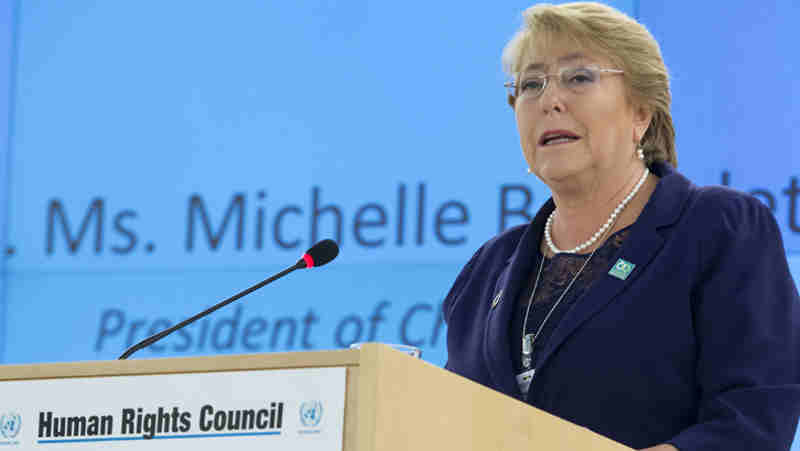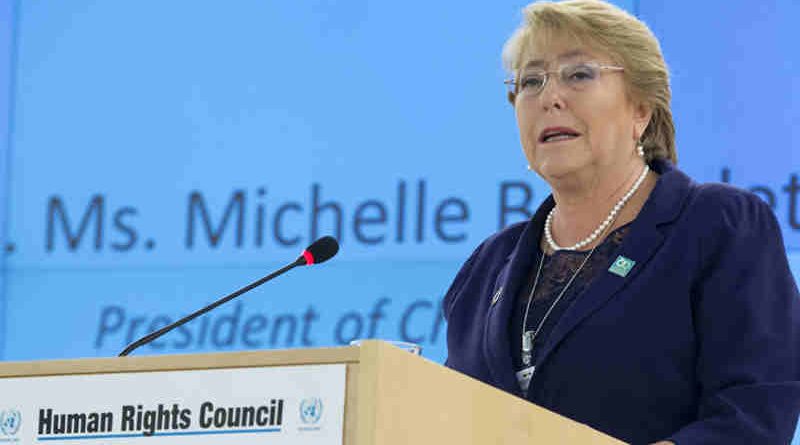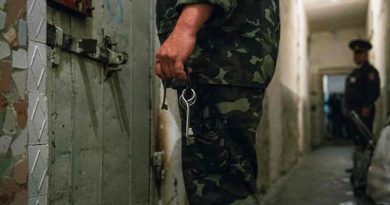Bachelet Issues Warning of Bloodshed and Suffering in Myanmar

In such circumstances, the world leaders must consider the use of Chapter VII of the United Nations Charter which specifies the UN Security Council’s powers to maintain peace.
By Rakesh Raman
Top scientist Albert Einstein is generally credited with the saying, “The definition of insanity is doing the same thing over and over again, but expecting different results.” No matter who said it, the adage fits well with the UN High Commissioner for Human Rights Michelle Bachelet.
She keeps repeating meaningless warnings and useless condemnation statements about the increasing human rights violations in different parts of the world, but these violations never stop. Ms Bachelet fails to realize that she is not doing any justice to the position she holds as her empty statements have no impact on the perpetrators of human rights violations.
Instead of taking moral responsibility for the spiralling violations and resigning from her post, Ms Bachelet starts repeating her casual statements which have hardly any effect. She repeated her bureaucratic rhetoric on June 11 when she warned of further escalation in violence across Myanmar.
Referring to some random reports of a military build-up in Myanmar, Ms Bachelet advised that the state security forces must halt violence to prevent even greater loss of life and a deepening humanitarian emergency.
|
Use of Chapter VII of the United Nations Charter The UN and the office of UN High Commissioner for Human Rights have repeatedly failed to protect human rights of the citizens in different parts of the world. The casual statements and recommendations of the UN bureaucrats are being ignored by the rogue states which are supposed to follow them. In such circumstances, the world leaders must consider the use of Chapter VII of the United Nations Charter which specifies the UN Security Council’s powers to maintain peace. It allows the Council to determine the existence of any threat to the peace, breach of the peace, or act of aggression and to take military and non-military action to restore international peace and security. ~ Rakesh Raman |
“There appear to be no efforts towards de-escalation but rather a build-up of troops in key areas, contrary to the commitments the military made to ASEAN to cease the violence,” she said in a casual statement. But she prefers to stay oblivious to the fact that the military rulers who staged a coup on February 1 in Myanmar have no respect for Ms Bachelet or her arm-chair advice.
As Ms Bachelet cannot take any punitive action against the cruel military rulers, they are violently attacking innocent people of Myanmar who have been protesting against the coup. According to the UN office, a minimum of 860 people have been killed by security forces since February 1, mostly in the context of protests.
Also, sweeping arrests of activists, journalists and opponents of the regime have continued across the country, with sources indicating that at least 4,804 people remain in arbitrary detention. The High Commissioner said she was also deeply troubled by reports of detainees being tortured, and of collective punishment of family members of activists – one mother of an activist was sentenced to three years’ imprisonment in place of her son on May 28.
“Rather than seeking dialogue, the military is branding its opponents as ‘terrorists’ and pursuing politically motivated charges against the democratic leadership,” Bachelet said. The High Commissioner encouraged the intensification of regional diplomacy, including by ASEAN and other influential States, to insist on the immediate cessation of violence and ongoing human rights violations.
The High Commissioner will be updating the UN Human Rights Council on the situation in Myanmar on July 7.
By Rakesh Raman, who is a national award-winning journalist and social activist. He is the founder of a humanitarian organization RMN Foundation which is working in diverse areas to help the disadvantaged and distressed people in the society.
💛 Support Independent Journalism
If you find RMN News useful, please consider supporting us.




